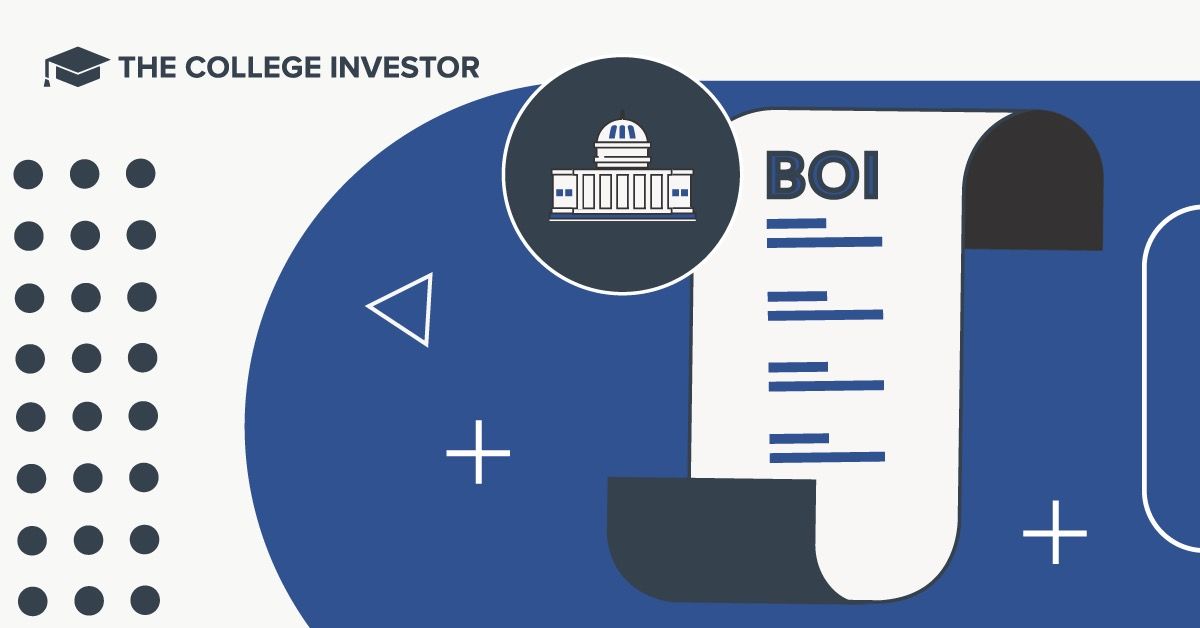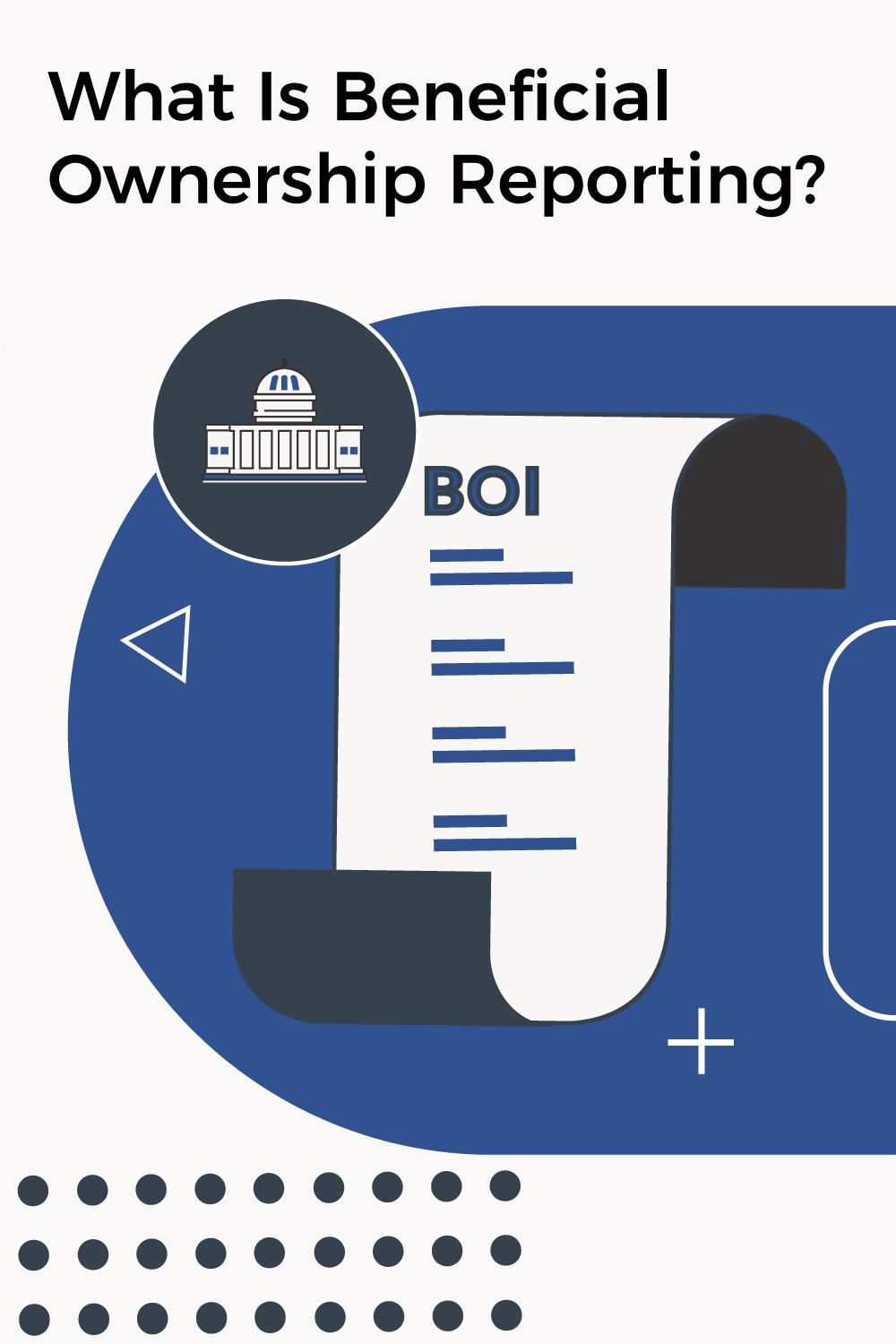
Starting on January 1, 2024, existing companies will have one year to file a Beneficial Ownership Information (BOI) report, which will provide detailed information to the United States Financial Crimes Enforcement Network.
The Corporate Transparency Act, passed in 2021, is a law that makes it harder for criminals to launder money in the United States. While the law was passed over two years ago, 2024 is the year in which companies need to start complying with the law.
If you own a small business, including a partnership or an LLC, you will need to file a BOI report in 2024. Here’s what you need to know.
What Is Beneficial Ownership Information Reporting (BOI)?
Starting on January 1st, 2024 all corporations, partnerships, Limited Liability Companies (LLCs), and foreign-owned companies doing business in the United States are required to file Benefit Ownership Information (BOI) reports to the United States Financial Crimes Enforcement Network (FinCEN).
Existing companies have until January 1st, 2025 to complete the reporting requirement. Companies that form in 2024 will have 90 days to complete the filing requirement. Those that form on or after January 1, 2025, will only have 30 days to complete the report.
At a high level, the beneficial ownership report will provide FinCEN with information about the people who own or control a company. The idea is that this information will make it harder for illicit actors to use shell corporations or other financial and business structures to launder money.
What Information Must I Provide In The Beneficial Ownership Information Report?
BOI reports will include two parts. The first involves information about the Reporting Company which is the business structure. The report will include the following:
- Company full legal name
- Trade Names (including DBA names)
- Current United States Address (or the primary location where the company conducts business)
- Jurisdiction of formation (The State, Tribe, or foreign location where the business was formed). Foreign businesses also have to provide the State or Tribal jurisdiction of first registration
- A Taxpayer Identification Number (TIN) or Employer Identification Number (EIN)
The second part includes information about “beneficial owners” and controllers of the company. This part of the report will include the following information about all owners and controllers:
- Full legal name
- Date of birth
- Complete current address
- Social Security Number (or a foreign equivalent)
- Image of a U.S. Passport, State driver’s license, ID issued by a U.S. state or local government or tribe, or a foreign passport.
Alternatively, a person or reporting company can request a FinCEN identifier. A FinCEN identifier is a unique ID that can be used to complete a BOI report. This identifier may be useful for individuals who are beneficial owners of many corporations.
Does My Company Need To File A Beneficial Ownership Report?
The Beneficial Ownership Reporting requirement doesn’t apply to all companies. It only applies to foreign and domestic companies that were by filing a document with a secretary of state or any similar office or Indian tribe.
Since sole proprietors don’t file a form when they get set up, they don’t need to file this report. This is good news for casual side hustlers who haven’t set up an LLC or a corporate structure. Additionally, trusts and foundations that haven’t registered with their states will not need to complete this report. The full list of exemptions is available on the FinCEN website.
Aside from these limited exceptions, owners (or controllers) of other companies and corporations need to complete these reports.
Will My Information Be Included In The Beneficial Ownership Information Report?
The BOI Report will include tax and legal information about “beneficial owners” and company controllers. A beneficial owner is anyone who owns at least a quarter of the company. A person with substantial control over a company includes senior officers, members of the board of directors for a company, or other people with substantial influence over the financial and business decisions of a company. This definition is a bit squishy right now, but companies can err on the side of sharing too much information rather than too little.
Who Can Access My Beneficial Ownership Information?
When you file a BOI report the information may be provided to Federal agencies, state, local, tribal, foreign governments, and financial institutions. In general, these entities may only access your information if the information is needed for law enforcement activities. The entities also have to keep your information using appropriate security protocols.
How To File A Beneficial Ownership Information Report
FinCEN hasn’t released a form that allows companies to complete a Beneficial Ownership Information Report. The form is available on the FinCEN BOI website.
Unlike filing taxes, filing a BOI report is supposed to be simple, so most company owners shouldn't worry about spending too much time getting it done.
The form will be available electronically, and most report filers are expected to file the report online.
Should I Pay Someone To File A Beneficial Ownership Information Report For Me?
Small businesses with only one or two owners probably won’t need to pay a third party to complete a BOI report for them. It is designed to be simple to complete using an online form.
Larger companies and those with more complex ownership structures may want to enlist help from an accountant or lawyer to complete the filing for the company. Note: some accountants may be unwilling to submit a BOI Report due to the nature of the reporting and their own insurance coverge.
Final Thoughts On Beneficial Ownership Information Reporting
While the BOI report adds another hoop to jump through for small business owners, most small business owners should be able to complete the report without too much difficulty. Ideally, completing this report will help FinCEN make the United States safer and fairer for all businesses.

Hannah is a wife, mom, and described personal finance geek. She excels with spreadsheets (and puns)! She regularly explores in-depth financial topics and enjoys looking at the latest tools and trends with money.
Editor: Colin Graves Reviewed by: Robert Farrington
